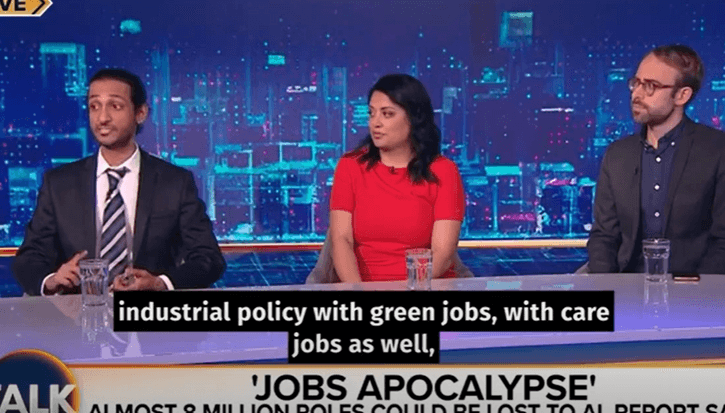Editorial: After Obama
Article
Who had cause to celebrate in 2016? Certainly not the global centre-left, which suffered a year of disastrous defeats – from the impeachment of the Brazilian president to the resignation of Matteo Renzi, via losses in the US, Australia, the UK, Spain and elsewhere. Instead, 2016 was a year of triumph for conservative eurosceptics, ethno-religious nationalists and white supremacists, with Brexit and Donald Trump standing as signifiers of a new wave of anti-globalisation.
Trump’s election consolidates a global shift towards conservative nationalism. Varieties of nationalism now govern across the world – in Russia, India, Turkey, the US and indeed China. But these nationalisms are diverse, and certainly cannot be assimilated to a consistent anti-globalisation, let alone ‘populist’, wave. The shift towards nationalism may have its roots in the Great Recession, and the processes of financialisation and de-industrialisation that proceeded it, but it cannot be reduced to a simple economic reflex of the ‘left behind’. The picture is far more complex than that.
Thus far, the western political order has not broken apart as it did in the 1930s; nor has the global economic order, despite the weakening of trade flows. But Trump’s election introduces a radical new dimension of uncertainty into world politics. It is in his relations with China that Trump’s narcissistic volatility has the potential to wreak the greatest damage. His unprecedented phone call with the Taiwanese president, and subsequent freewheeling Twitter abuse of Chinese trade and security policy, undermined many years of careful post-Nixon G2 diplomacy. Yet even these provocations drew limited fire from Beijing, which refused to be provoked. China has made clear its determination to prevent a slide towards protectionism and to defend the Paris agreement on climate change, and it has plenty of policy tools with which it could exact a heavy price from the US if tariff wars get underway. Despite Trump’s bluster and bravado, the liberal economic order on which China’s growth depends has political and institutional ballast that the US president will find it punishingly difficult to dislodge. The economic self-interest of the US will tell against it.
We can be more certain that Trump will use the Republican domination of congress and the power of executive appointment to roll back many of President Obama’s achievements. The rule of law will be challenged and the nation’s institutions undermined. Less concretely, but importantly, Trump’s presidency will mark an abrupt sea-change in tone and symbolism, from a White House that exemplified a multicultural, modern America and was a symbol of African American achievement, to one in which white chauvinism and a nativist impulse will be tacitly encouraged.
Given this, how will history judge Obama? In his grace, temperament and intelligence, he will surely be missed. As Jebediah Purdy argues in our collection reflecting on his presidency, Obama is the exemplar of an American tradition – of liberal constitutionalism mixed with a belief in national perfectibility – that, while imperfect, is a vital and progressive tradition nevertheless. Moreover, as the moral philosopher Elizabeth Anderson sets out, he has advanced the most consequential progressive domestic policy agenda since Lyndon Johnson. From his stimulus agenda to Obamacare, from banking reform and improvements in labour rights to radical improvements in climate change policy both domestic and international, his presidency was the high-water mark of American liberalism. While that is now under threat, it nonetheless attests to the potential to improve, albeit incrementally and imperfectly, the American experiment. Hope was matched by achievement.
Moreover, as Richard Yeselson of Dissent argues in these pages, his presidency provided the breathing space that was needed to allow a flourishing of social and economic movements, from Black Lives Matter to the ‘Fight for $15 [per hour wages]’ movement, that will likely come to the fore in the years ahead, as a disorientated Democratic party searches for means of renewing itself. With Trump threatening to entirely expunge his legislative and executive record, while taking command of a lethal and secretive security state apparatus that Obama expanded – perhaps Obama’s greatest legacy will be a vision of American principles – one rooted in justice, fairness and solidarity – that is very much at odds with that of the president-elect, but will continue to serve as inspiration to many.
Does 2017 herald more gloom and despair? In our collection of predictions, optimism is hard to find. If Le Pen wins in France, it will be a fatal blow to the European Union and European liberalism, the twin pillars of the postwar order that is already reeling. Germany may act as a firewall, yet there, too, populism is on the march. And it is not alone: across much of the world, in 2017 and beyond we will witness intense political contests over who gets to define and speak for ‘the people’, with often ugly results. Further afield, from South Africa to Syria to the refugee crisis, our contributors expect to see an escalation of existing crises in the year ahead, not their resolution.
Domestically, the challenge of Brexit looms large. From the politics of migration, to the health of the economy and the state of progressive politics, the aftershocks of 23 June 2016 will radically reshape and disrupt the UK’s political-economic order in the years ahead. Matthew Taylor argues that, as the tectonic plates of British society shift, progressives will need to be alive to technological possibilities, able to conduct a more emotionally intelligent and authentic politics, and champion ideas that speak to the conditions of the future. Their only alternative is to slide into irrelevancy.
In the opening months of 2017, though, the end of Obama’s presidency and the inauguration of Trump’s will be the signal political event. It will be a stark about-turn, from Philip Roth’s ‘American pastoral’ into ‘everything that is its antithesis and its enemy, into the fury, the violence’ of the ‘indigenous American berserk’. The republic will endure Trump’s tenure – but in what shape, and with what consequences for the world?
Mathew Lawrence, Guy Lodge, Nick Pearce and Carys Roberts
This article appears in edition 23.3 of Juncture, IPPR's quarterly journal of politics and ideas, published by Wiley.
Related items

Forging ahead: Deciding the direction of IPPR's Migration Policy Unit
In our last blog post for the Migration Policy Unit we shared our new way of working as we endeavour to be inclusive and transparent in our policymaking process. In this blog we set out what our first and flagship project is for the policy…
Who gets a good deal? Revealing public attitudes to transport in Great Britain
Transport isn’t working. That’s the message from the British public. This is especially true if you’re on a low income, disabled or living in the countryside. The cost of living crisis has exposed the shortcomings of our transport system,…
Bhargav Srinivasa Desikan on TalkTV discussing AI
IPPR's Bhargav Srinivasa Desikan on TalkTV discussing his new report on the impact of generative AI on the UK labour market.